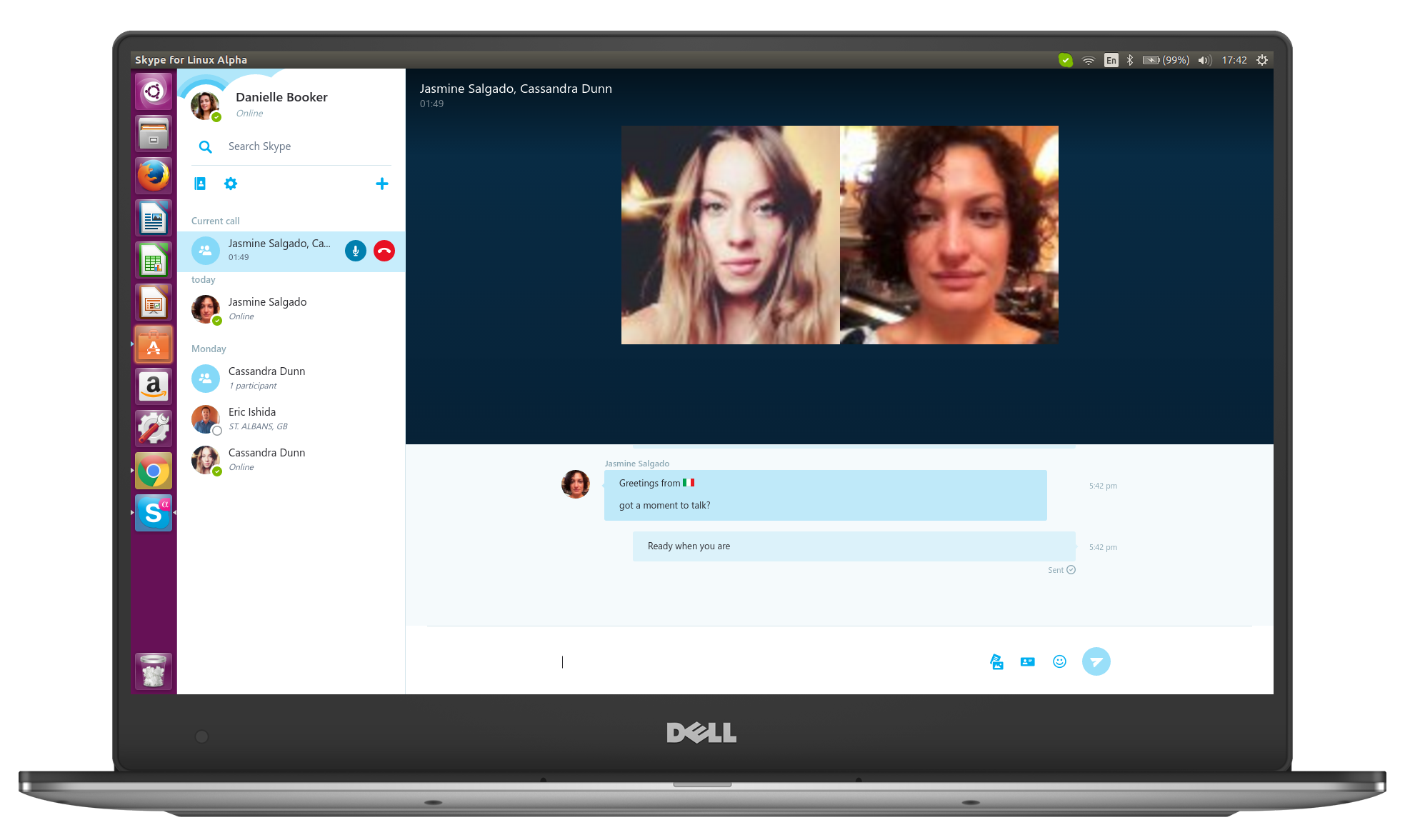
Skype returns to Linux!
For a long time I was very high on Skype. As a Windows, Linux, and iOS user, its cross-platform nature made it a dream. Unfortunately, Microsoft started neglecting the Linux desktop client, causing it to become outdated from a design perspective and not entirely functional. I assumed the Windows 10-maker simply no longer cared about Linux on the desktop.
I assumed wrong. Shockingly, Microsoft announces a new Skype client for Linux -- currently in Alpha. In other words, Skype for Linux is back, figuratively speaking. The company is pledging its support for desktop operating systems based on the open source kernel. Will Linux users embrace it?

Declare independence from Windows 10 by downloading Linux Mint 18 'Sarah' now!
As we approach the Fourth of July weekend, I begin thinking about independence. I am very proud of my forefathers for defeating the British -- our now-ally -- and creating our great nation, the USA.
With that said, there are other things from which you can declare independence -- such as Windows 10. Look, I think Microsoft's desktop operating system is pretty good, although I understand that some folks are fearful of spying and forced-upgrade behavior. If you want to be free from Microsoft and Windows, I have good news -- today, Linux Mint 18 is finally available. Will you download it and declare your independence?
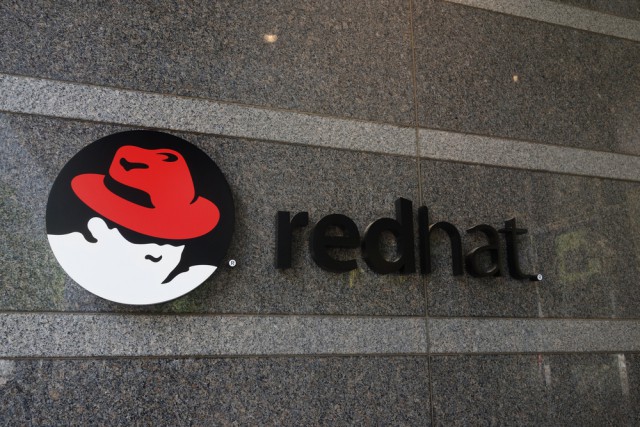
Microsoft releases .NET Core 1.0, complete with Red Hat Linux support
Today at the Red Hat Summit, Microsoft announced the launch of .NET Core 1.0. Continuing the company's embrace of other platforms, the latest version of the open source .NET runtime platform supports Windows, OS X, iOS, Android and -- of course -- Linux.
At the summit, Red Hat said that .NET Core 1.0 will be fully supported by Red Hat Enterprise Linux. With Microsoft's partnership with Red Hat late last year, and the company's on-going expansion into the cross-platform cloud, Linux support is not entirely surprising. Also announced today was ASP.NET Core 1.0 and Entity Framework 1.0 for developers to get to work with.
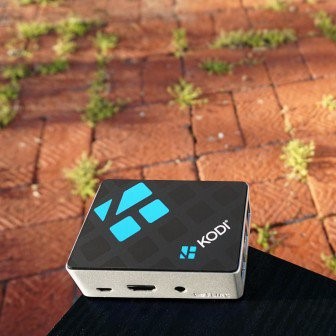
Official Kodi Edition Raspberry Pi Case now available with advanced overclock cooling
The Raspberry Pi family of computers are insanely popular. It is not hard to see why; the mini machines are very inexpensive while also being very capable. They can be a great choice for tinkering, plus teaching children to code and make.
For many folks, however, the Raspberry Pi makes a great media center device. By loading something like Kodi (formally XBMC), you can have a rewarding diminutive home theater experience. Today, Kodi partners with FLIRC for an official Raspberry Pi case.
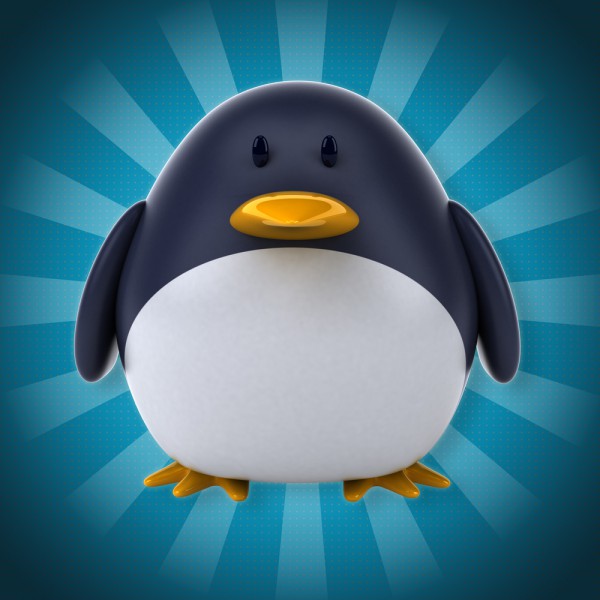
Fedora 24 is here with GNOME 3.20 -- download the open source Linux distro now
Many people consider Fedora to be an operating system for advanced Linux users, and yeah, I suppose there is some to truth to that. Distros such as Ubuntu and Mint can be easier for beginners, but Fedora is not necessarily a bad choice for these newbies. As more folks live in the browser and enjoy their media there, there can be less of a need for non-free packages. If someone is new to Linux and just needs a web browser and LibreOffice, for instance, why not the rock-solid Fedora?
Today, Fedora finally achieves version 24. True, the team is a bit "late" with the release, but that is fairly commonplace with Fedora, actually. With that said, shipping when ready is better than being beholden to a date, right?

Ubuntu 'Snap' now universal -- coming to Linux distros like Fedora, Arch, OpenSUSE, and more!
My biggest complaint about Linux based desktop operating systems is fragmentation. There are too many desktop environments, too many package managers, heck, too many distros! Not only can end-users be negatively impacted by too many choices, but more importantly, developers can be spread too thin. Ultimately, the Linux community ends up being unfocused and unable to move the desktop dial.
Today, something miraculous happens. Believe it or not, the Linux Community largely bands together to embrace Ubuntu's "Snap" packages. Yes, you are reading that correctly -- competing Linux-based operating systems like Fedora, Gentoo, Arch, and more, will utilize the now-universal "Snap," meaning Linux software can be made to install regardless of distro. This should be particularly brilliant for operating systems optimized for mobile and IoT.

elementary OS 0.4 'Loki' Beta now available -- download the popular Linux distro here
There are a lot of Linux-based desktop operating systems nowadays. Understandably, it can be hard to pick one. Many Linux users end up being distro-jumpers, constantly trying many, yet never settling.
One popular Linux distro is vying for your attention, hopefully making you feel at home -- no jumping needed. Called elementary OS, it uses an Ubuntu base for stability and software compatibility. The developers put a high value on the user experience -- the interface is both gorgeous and intuitive. Today, the much anticipated 0.4 version -- code-named 'Loki' -- sees Beta release.
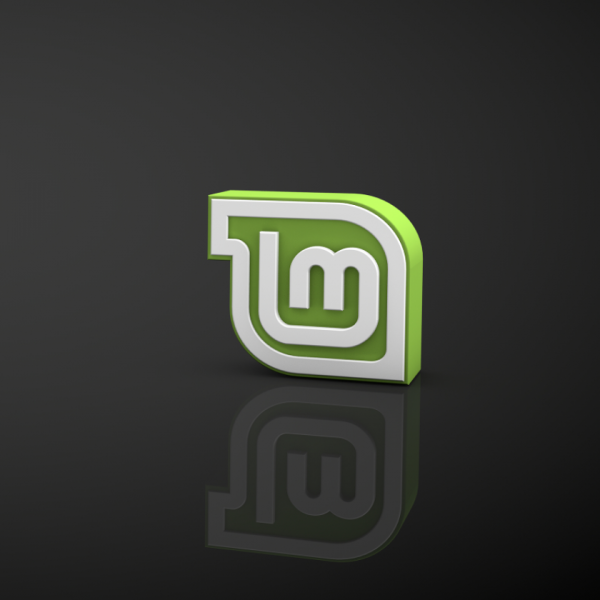
Linux Mint 18 'Sarah' BETA available now
With all of the negative press surrounding Windows 10, many folks in my private life are asking me about alternatives. Believe it or not, Linux is often the answer. The first thing I ask them is, for what do you use your computer? Almost everyone tells me things like Facebook, email, and word processing. Well, a combination of Google Chrome and LibreOffice on top of an easy-to-use distro meets those needs perfectly.
The big decision, however, is selecting a Linux-based operating system. Ubuntu is always a good choice, although Unity can be a bit confusing for a transitioning Windows user. Manjaro is a solid choice too, and I highlighted that recently. Ultimately, however, Linux Mint is probably the wisest choice for someone totally new to Linux -- it is familiar, beautiful, and easy to use. Today, version 18 -- named Sarah -- becomes available with both Cinnamon and Mate desktop environments. While newbies should avoid it until the final release, Linux experts can safely jump in.
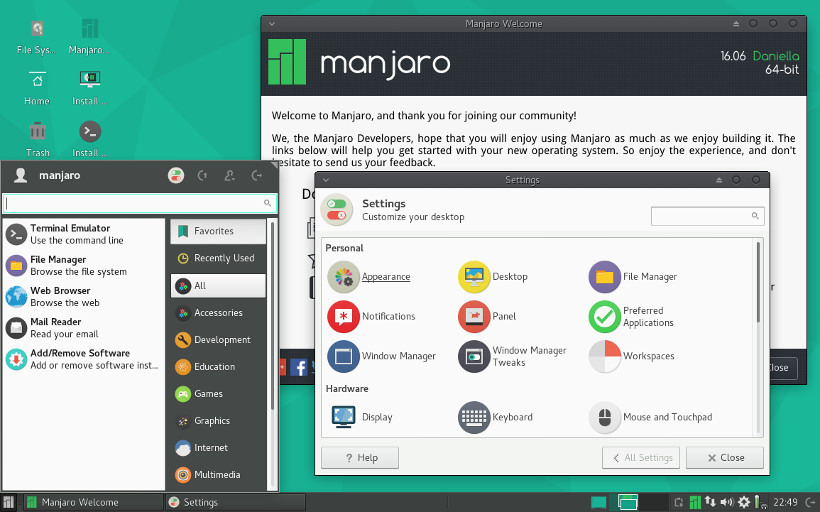
Download Manjaro Linux 16.06 'Daniella' now -- a solid Windows 10 alternative
Windows 10 is a great operating system from a usability standpoint. Unfortunately, between the privacy issues and Microsoft's unethical upgrade tactics, more and more folks are turned off to it. Luckily, thanks to Linux, users don't have to tolerate the company's shady behavior.
If you want to switch to Linux, please know that while Ubuntu is a great operating system, it is not the only OS based on that kernel. Quite frankly, there are too many distributions, but I digress. Another fairly easy-to-use Linux-based operating system is Manjaro. For many folks leaving Windows, the default UI should be an inviting sight. Today, version 16.06 code-named "Daniella" becomes available for download. Will you format your Windows drive and join the Linux community?

The Linux Foundation announces the 2016 LiFT Scholarship Program -- here's how to apply
If you are into technology and computers, but unsure about a career path, open source and Linux are both wise focuses. While the job market cannot be predicted with absolute certainty, it is undeniable that both of those things are increasingly important. The Linux-based Android is the most popular mobile operating system, while major companies like Microsoft, Google, and Apple embrace open source.
The problem with education nowadays is the high cost. Many people can't afford to pay for classes out of pocket, and if they take out student loans, they can end up in debt for many years. Luckily, scholarships can help alleviate the stress of education costs. Today, The Linux Foundation announces the 2016 LiFT Scholarship Program, offering a free course and certification exam for chosen applicants. If you want to experience formal learning of Linux, you should definitely apply.
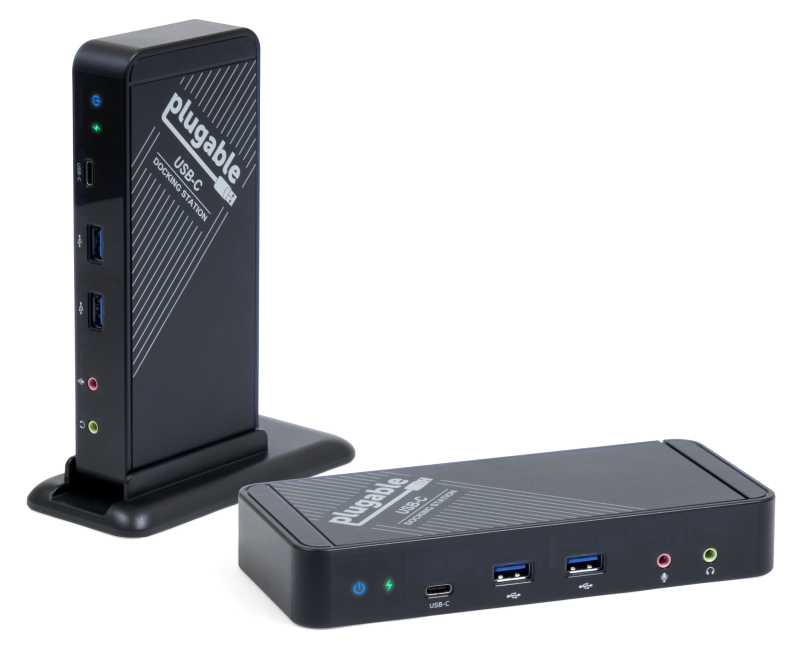
Plugable UD-CA1 USB Type-C universal 4K charging docking station now available
If you purchased Apple's newest MacBook, congratulations -- you own a really cool svelte machine. While a bit under-powered, for some people -- depending on their needs -- it is a solid, albeit expensive, choice. Unfortunately, while its USB Type-C port is quite modern, it is the only port on the machine (other than a 3.5mm audio jack). This is problematic, as you cannot charge the laptop while utilizing USB accessories.
The way around this limitation, however, are USB hubs which also pass-through power. Today, Plugable announces a new product that takes this concept a step further. Its new UD-CA1 is a USB Type-C universal charging docking station, capable of outputting 4K video. It is a full-fledged single-cable docking solution for not only Apple's MacBook, but Windows and Linux machines with USB Type-C too -- including Chrome OS. When combined with a display, keyboard, and mouse, the Plugable UD-CA1 will turn the laptop into a powerful desktop workstation.
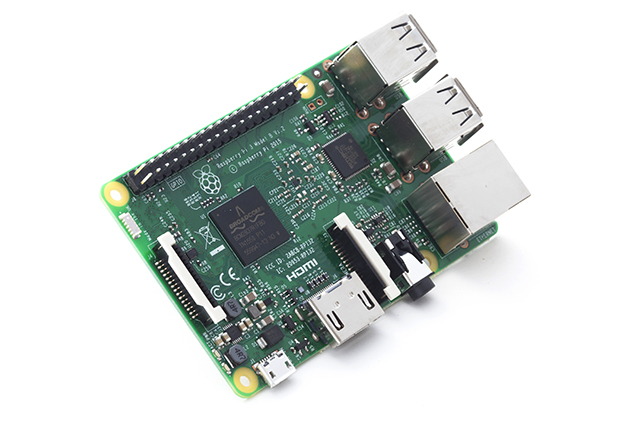
Own a Raspberry Pi? You need to download this Raspbian Linux OS update -- here's what's new
No matter how great hardware is, you need software to make it have any value. After all, what good is a computer without an operating system? Who would want a powerful graphics card without drivers? A good computing experience is the successful marriage between hardware and software.
A great example of this is the Raspberry Pi. At first, the specs and diminutive size pull you in, but then you must ask, what can you do with it? You will need to install an operating system to get started, and one of the most popular is Raspbian. Today, that lightweight Linux distro gets a big update. There are some significant updates here, so trust me when I say you need to get it!

Fedora 24 Beta is here -- Linux fans, download it now
While Ubuntu focuses on convergence -- smartphones and tablets -- Fedora seems comfortable with the desktop, server, and cloud. You know what? That is not a bad thing. There are far too many Linux distributions nowadays, and if they all started focusing on a "Swiss Army" strategy with mobile device types, things would get messy. I find Fedora's narrower view refreshing.
Today, the Fedora Project announces that version 24 of the operating system achieves Beta status. If you have never tried the Linux-based OS, I urge you to give it a go. If my recommendation doesn't do it for you, please know that it is the operating system of choice for Linus Torvalds -- father of Linux.
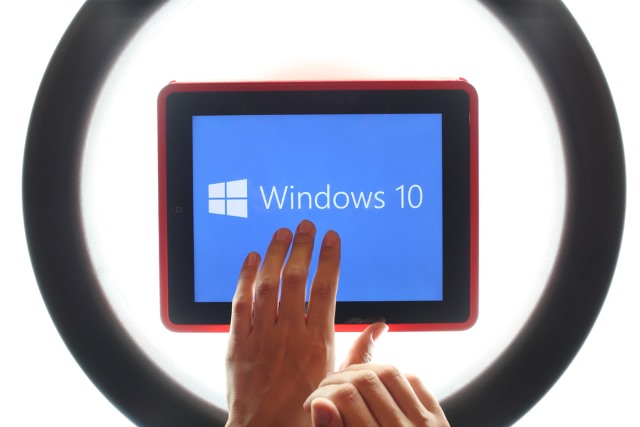
Windows 10 growth slows as OS X makes market share gains
The growth of Windows 10 continues, albeit slowly, the latest figures from NetMarketShare show. The statistics for April reveal that, at long last, Windows 7 is no longer installed on the majority of computers, slipping to a 48.79 percent market share. Windows 10 saw slight growth to 14.35 percent (up from 14.15 percent), and Windows XP dropped below 9.66 percent.
Usage of Windows 8.x stayed largely stable (12.11 percent compared to 12.01 percent in March), but the balance between Windows 8 and Windows 8.1 (9.16 percent down from 9.56 percent) shifted slightly, with the older version seeing slight growth (2.95 percent, up from 2.45 percent). OS X's market share increased slightly, and Linux dropped a little.
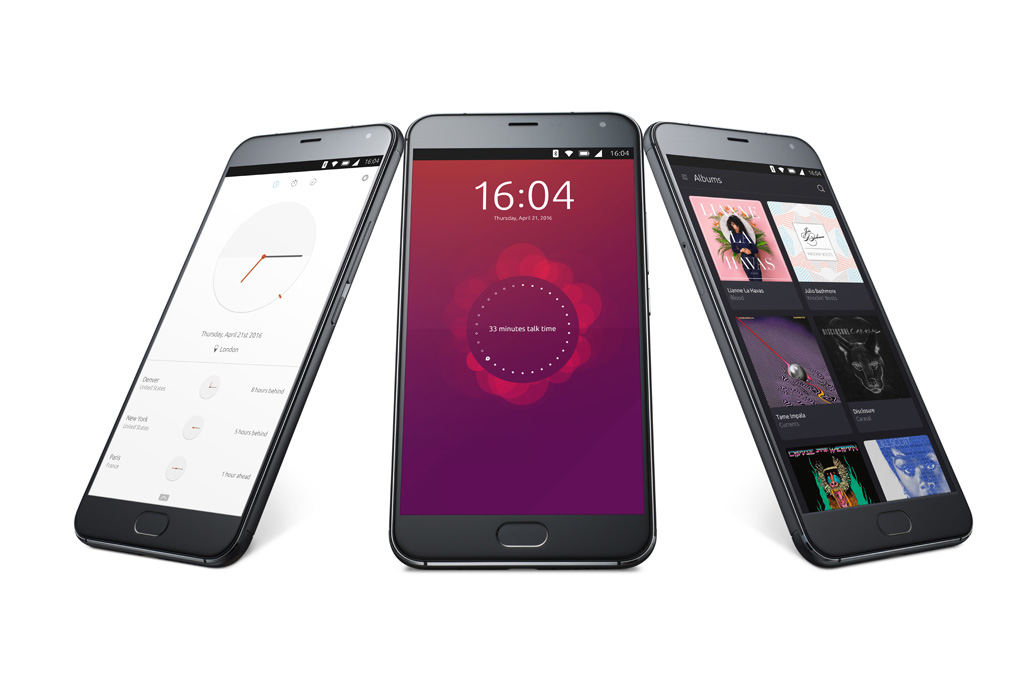
Meizu PRO 5 Ubuntu Edition smartphone finally available -- Linux fans, buy it now!
Android is a Linux-based operating system, true, but for many, it is sort of a bastardized use of the kernel. Understandably, Nexus devices aside, it can feel very un-Linux-like to have devices with locked bootloaders that cannot be easily updated. Some Linux fans have been clamoring for an alternative.
Ubuntu is that alternative. Canonical's operating system can scale well, from desktop to tablet to smartphone. Best of all, you can buy an unlocked device that requires no carrier approval for OS updates. Today, the most exciting phone to run the operating system -- Meizu Pro 5 Ubuntu Edition -- goes on sale.
